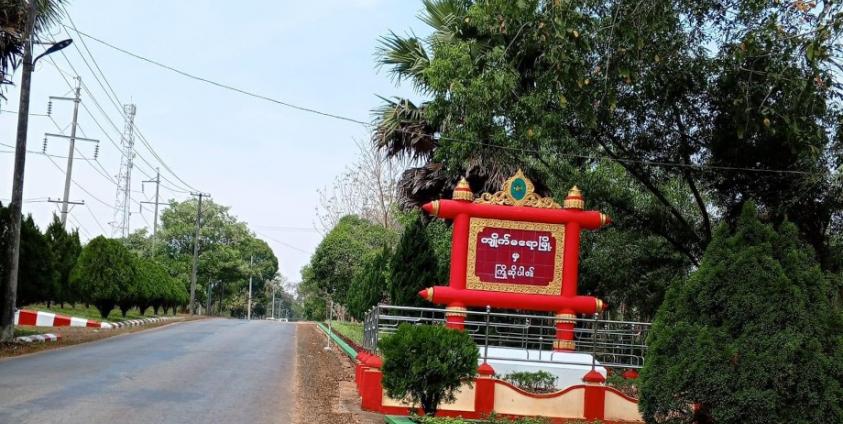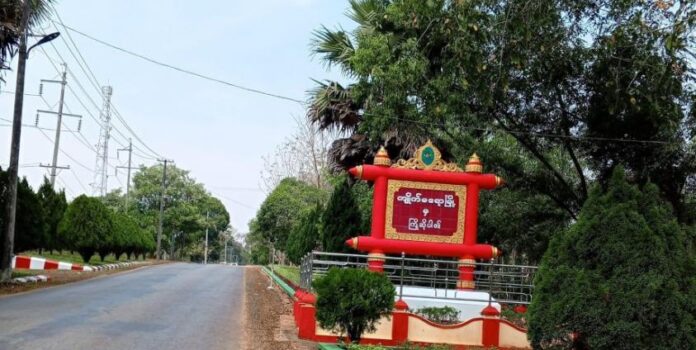Despite the presence of landmines and unexploded ordnance left behind by the military junta, farmers along the Gyaing River in Kyaikmaraw Township, Mon State, continue to grow monsoon rice in a desperate attempt to preserve their farmland and livelihood.
Local sources report that agricultural lands near villages such as Kawtpalaing, Dhammasa, Thankalaung, Taranar, Kawtswei, and Kawtthat remain littered with landmines and remnants of military weapons. These areas are located near at least 14 junta army outposts, where active minefields have yet to be cleared.
Some of the unexploded ordnance remains in the fields since clashes between junta forces and resistance groups took place last year. As a result, both farmers and their draft animals, buffaloes and oxen, are frequently injured during plowing and planting.
Despite the risks, a small number of farmers have resorted to broadcast seeding, a less labor-intensive method of rice cultivation, to avoid losing their land or having it confiscated by authorities.

“If we don’t farm, the land may be ruined or seized. This is the only work we have. If we give it up, how will we feed our families?” said a farmer from Kawtthat village.
Farmers working lands located closest to military outposts, however, have been forced to abandon rice cultivation entirely due to the high risk of mines.
This marks the third consecutive year that many farmers in Kyaikmaraw have been unable to farm their land due to landmine threats, forcing them to buy rice at high prices for daily consumption.
According to locals, the junta has made no effort to remove the mines or unexploded weapons. Instead, they have warned villagers not to enter farmland located within 30 feet of military camps effectively rendering those lands useless.
“They planted the mines near their own camps, which are close to farmland. The fields are dangerous now, but we can’t say anything to them. We’re scared of stepping on a mine. Many have just given up farming altogether,” said a farmer from Kyaikmaraw.
Mine clearance groups have also issued warnings that with heavy seasonal rains and shifting soil, landmines and explosives can be dislodged and move closer to homes, yards, and pathways increasing the danger even in areas farther from military camps.
In May alone, there were at least two landmine incidents in Kyaikmaraw Township. A child and a male farm worker were injured in separate explosions.
Kyaikmaraw has become a stronghold of resistance activity in Mon State. Since late 2024, the military junta has ramped up troop deployments in the area to suppress resistance forces, but anti-junta groups continue to launch regular attacks on junta positions.

